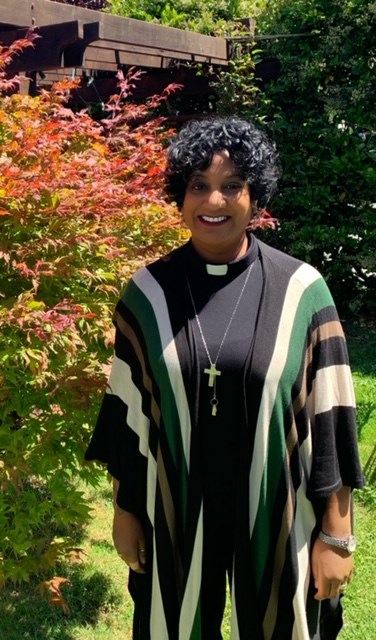 If mercy is when you don‚Äôt get what you do deserve then Grace is when you get what you don‚Äôt deserve. Grace is undeserved kindness. We‚Äôre all familiar with the modern-day idioms: ‚Äúby the grace of God‚Äù; ‚Äúgrace period‚Äù or ‚Äúa saving grace‚Äù. However, when it comes to extending grace to others or extending grace to ourselves, to use another idiom, it is easier said than done.¬Ý
If mercy is when you don‚Äôt get what you do deserve then Grace is when you get what you don‚Äôt deserve. Grace is undeserved kindness. We‚Äôre all familiar with the modern-day idioms: ‚Äúby the grace of God‚Äù; ‚Äúgrace period‚Äù or ‚Äúa saving grace‚Äù. However, when it comes to extending grace to others or extending grace to ourselves, to use another idiom, it is easier said than done.¬Ý
I am a pastor in the Lutheran tradition, and I am a woman of colour. I have the opportunity to understand grace whole heartedly. Martin Luther, protestant reformer after whom the denomination is named, (despite the notion that Luther himself would be displeased with the attribution), proclaimed that faith was a reliance on the abundant grace of God. Salvation, by Lutheran understanding is by grace through faith in Christ, and that grace is God‚Äôs unmerited good intention towards all of creation. To be a recipient of God‚Äôs grace is to be humbled in gratitude and awe, knowing it is indeed unmerited. To extend the same undeserved kindness towards others comes from a deep knowledge that we ourselves are not perfect and yet still we are beloved.¬Ý
Who could describe themselves as perfect, anyways? Certainly not me. I can get angry and uncharitable when I encounter the indignity of racism, either in the form of personal microaggressions or as I navigate my life as a person of colour in predominantly white systems structured through predominantly white lenses for predominantly white benefit. Is graciousness my first reaction? My go-to response? Is trusting that I am God‚Äôs beloved the instinctual assurance that washes over me when I encounter ignorance or hate? No, and especially when I see how inequitable systems can harmfully affect others who have much less privilege than I do and are being unfairly relegated to circumstances that perpetuate oppression.¬Ý
Nevertheless, some of the greatest examples of grace I‚Äôve seen have been from those who suffer serious indignities and yet choose kindness, choose patience, choose to hope and persevere. Some of the greatest expressions of graciousness I have witnessed are through those who choose to see enough humanity in the failings of the other and enough compassion in themselves to forgive. Not to forget. Not to cease any painstaking work towards justice, equity and dignity for the sake of our neighbour, but to forgive and to extend some grace in hope for better relationships and communities.¬Ý
In a world where divisiveness is palpable, whether we‚Äôre discussing race, religion, politics, vaccines or the implementation of provincial health orders, our ability to know and forgive ourselves as imperfect people and extend some of that same forgiveness to others seems less of an intuition and more of a laboured and valuable practice.¬Ý
Grace is a practice of my faith, but it is by no means exclusively Lutheran or Christian. Grace is expansive and life affirming, experienced and practiced through all human relationships. Perhaps this is why at the beginning of the pandemic and our first encounters with what has now become our way of life, our Provincial Health Officer reminded us of a three-fold mantra: Be kind, be calm, be safe. It was almost as if she knew and voiced what we all know about living in community as human beings - That the journey is long, we are all here together and somewhere along the way, we will need to remember grace.¬Ý
 The Rev. Aneeta Saroop, Evangelical Lutheran Church in saπ˙º ¥´√Ω has recently relocated from Victoria after 34 years and is now serving as the pastor of Spirit of Life Lutheran Church in Vancouver, saπ˙º ¥´√Ω¬Ý
The Rev. Aneeta Saroop, Evangelical Lutheran Church in saπ˙º ¥´√Ω has recently relocated from Victoria after 34 years and is now serving as the pastor of Spirit of Life Lutheran Church in Vancouver, saπ˙º ¥´√Ω¬Ý
You can read more articles on our interfaith blog, Faith Forum, HERE
* This article was published in the print edition of the saπ˙º ¥´√Ω in Saturday, January 23rd 2021
Photo of hummingbird¬Ýby¬ÝÃ˝¥«≤‘Ã˝



